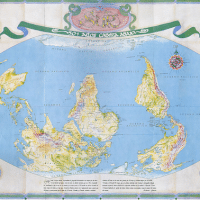-
Discovering Das Kapital
This talk by Issac Deutscher was originally published in Monthly Review on December 1967 to commemorate the 100th anniversary of Karl Marx’s Capital. We are making it available here on the occasions of the 150th anniversary of Capital. In the original editors’ note to this article, 50 years ago Leo Huberman and Paul M. Sweezy wrote: “This is the text of a talk given last summer on the BBC’s Third Programme. It is reproduced here by permission. Isaac Deutscher is the author of distinguished biographies of Stalin and Trotsky, and at the time of his death at the age of 60 last August he was working on a biography of Lenin.” —The Editors
-
From gender to Jamaica
It didn’t affect many people directly, but even small victories are welcome these days. Germany’s Constitutional Court just ruled that no-one should be forced to declare themselves officially male or female. It thus created a third open category anyone can opt for (or be opted by parents when still a child). I think everyone can […]
-
150 years of Marx’s Capital
150 years back, Karl Marx’s Magnum Opus Das Kapital (Volume I) rolled out of the press on September, 1867. The publication signified nothing short of a silent revolution on the theoretical plane, and the world would never be the same again. Capital soon became the most discussed and debated work.
-
Poulantzas and the juridical constitution of the subject
Although Nicos Poulantzas is rightly regarded as one of the most innovative Marxist theoreticians of the state, most analyses tend to focus on his account of the relative autonomy of the capitalist state in the organization of the hegemonic bloc of the capitalist class.
-
Letter from the U.S.: Trump and Bannon take control
Writing in the October 28 New York Times, conservative columnist David Brooks said the preceding week was “when Donald Trump and Steve Bannon solidified their grip on the Republican Party and America’s national government”.
-
A century after the Bolshevik Revolution
In the world we’re living in, it’s not enough to solve the tension between capital and work, the ongoing crisis of civilization urgently demands that we address the tension between capital and nature, which is currently compromising the existence of life in our planet.
-
Only intelligent planning can save us
Universalism is not an innocent concept. In “The Grandeur and Twilight of Radical Universalism,” published shortly after the fall of historical communism, Ágnes Heller and Ferenc Fehér, former Marxist philosophers and disciples of Georg Lukács, accused Marx and his followers of turning the Hegelian concept of universalism into a philosophy of praxis, a “predictive and action-orienting device” applied to change the world.
-
Silvia Federici, ‘Caliban and the Witch’
Caliban and the Witch is a reminder that it is the task of feminists and Marxists alike to demand that the sphere of reproduction and continuing forms of colonialism be seen as key sources of value for capitalism and therefore as key sites of struggle against it.
-
FARC’s insurgent feminism moves from the battlefield to society
Diana Lozado was 21 when she left her home city of Nieva and fled into the jungle to fight with the FARC. She had always been fascinated by the guerrilla movement and its fight against inequality in the countryside, and Lozado wanted to be part of it.
-
The “Amazon Amendment” would effectively hand government purchasing power over to Amazon
This week, representatives of three major internet platforms — Google, Facebook, and Twitter — are testifying before Congress about their role in facilitating Russian meddling in the 2016 election. But a fourth giant sat comfortably removed: Amazon.
-
‘I made this… but didn’t get paid’: Garment workers appeal directly to shoppers
Factory workers draw attention to mistreatment and unpaid wages with notes hidden inside clothing items.
-
Balfour at 100: A legacy of racism and propaganda
The coming months mark the centennial of Palestine’s forcible incorporation into the British Empire. In November 1917, British foreign secretary Lord Arthur Balfour declared his government’s support for “the establishment in Palestine of a national home for the Jewish people”; in December, Jerusalem fell to British troops.
-
Paradise Papers: Tax havens show the hypocrisy of the rich
Another glimpse into the lives of the rich and famous has come to light.
-
Offline: Medicine and Marx
When President Xi Jinping addressed the 19th National Congress of the Communist Party of China last month, he spoke of “the scientific truth of Marxism-Leninism”. Marxism (with Chinese characteristics), as President Xi went on to set out, is to be the foundation for a Healthy China.
-
Yanis Varoufakis’s self-incriminating account of the Greek Crisis (Part 3)
[box type=”note” style=”rounded”]Part 1: Proposals Doomed to Fail Part 2: Varoufakis’s questionable account of the origins of the Greek crisis and his surprising relations with the political class Part 3: How Tsípras, with Varoufakis’s aid, turned his back on Syriza’s platform [/box] Yanis Varoufakis traces his collaboration with Alexis Tsípras and his alter ego, Nikos […]
-
Yanis Varoufakis’s self-incriminating account of the Greek Crisis (Part 2)
[box type=”note” style=”rounded”] Part 1: Proposals Doomed to Fail Part 2: Varoufakis’s questionable account of the origins of the Greek crisis and his surprising relations with the political class Part 3: How Tsípras, with Varoufakis’s aid, turned his back on Syriza’s platform [/box] In his latest book Adults in the Room, Yanis Varoufakis gives us […]
-
The Afro-Asian Writers Association and Soviet engagement with Africa
This post is part of our online forum, “Black October,” on the Russian Revolution and the African Diaspora
-
W. E. B. Du Bois’s “Black Reconstruction” and the new (Marxist) historiography
What follows is the paper I gave this past weekend at the ninth annual meeting of the Society for U.S. Intellectual History in Dallas. I received excellent comments from our chair, Amy Wood, and from several audience members–comments that have made me rethink some of my argument. But I publish here without editing in the hopes that I receive more comments.
-
The other battle: to consolidate commandante Chavez’s dream
Beyond electoral battles and victories, the Bolivarian Revolution must fight a strategic battle every day; that is the battle of ideas. This cannot be waged simply through theoretical debate alone, but through the real practice of political ethics.
-
OCTOBER: The Story of the Russian Revolution
Commenting on the many works on the Russian Revolution, China Mieville describes his book as: “… a short introduction for those curious about an astonishing story, eager to be caught up in the revolution’s rhythms. Because here it is precisely as a story that I have tried to tell it.”




















